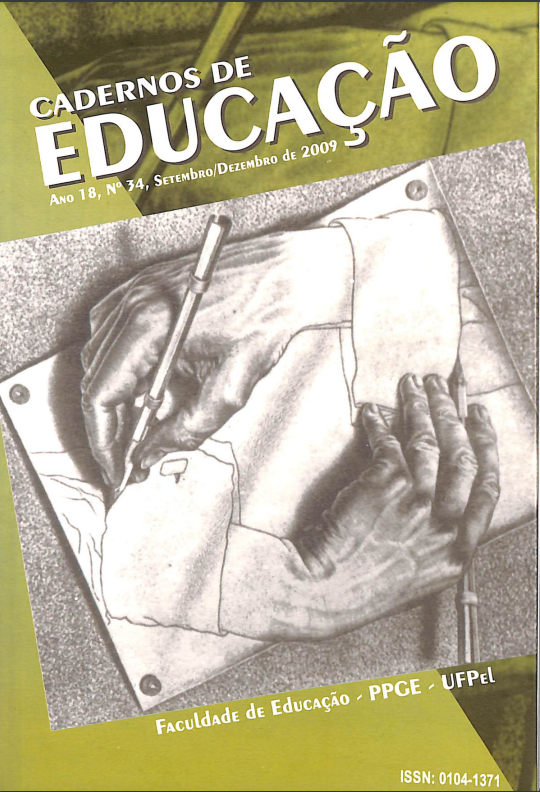La ética pierde el juicio
Resumo
En este ensaio es analisado la ética como un acontecimiento que no pueda fundamentarse. Solamente es posible mostrar dónde y cuándo acontece. Y eso, mostrar, es lo que hace el testimonio y también la obra de arte. Con la ayuda de Irene, la protagonista de Europa 51, se mostra la irreductibilidad de la ética a la política y a la moral, su falta de fundamento, su falta de normatividad, su falta, en suma, de logos. Asi es detacado tres cosas: primero, el no sé de Irene, como una conducta inexplicable a la orden burguesa, que escapa al principio de razón suficiente, que escapa a la normalidad; segundo, al aprendizaje de Irene basado en la repetición, latencia y revelación, que nos es toma de conciencia y no ocorre por una pedagogía de la verdad. Su aprendizaje pasa por situarse en un lugar exterior al saber, a la conciencia, y a las representaciones, es decir, en el no sé. Irene se conduce y es conducida a otra cosa que a un saber; por fin, en tercer lugar, los distintos momentos del desplazamiento de Irene, su perda del juicio en todos los sentidos de esa expresión: el juicio en el que es juzgada (y condenada) por todos los representantes de la razón y de la moral, y el juicio que le permitiría a ella misma entenderse y encontrarse en el interior de un orden de razones cualquiera. Asi Irene gaña la capacidad de estar presente y busca el gesto justo, la palabra justa, la mirada justa, aquella que da vida e instaura la paz. En esa búsqueda a la vez ética y existencial, lo que Irene muestra es que hay siempre un exceso, un grano de locura, algo irracional o desordenado, algo en suma que escapa al juicio, a la argumentación, a la razón, a la sensatez, a lo que todavía podría explicarse. Esas tres cosas mostran que la cuestión ética no es un cuestión jurídica.Palabras clave: ética, diferencia, cine
The ethics lost its mind
AbstractIn this essay ethics is analyzed as a happening that can’t be found. It’s only possible to show where and when it happens. And this, showing, is what makes acknowledgment and also the work of art. With Irene’s help, the main character of Europa 51, it is shown the irreducibleness of ethics to politics and moral, its lack of founding, its lack of normativeness and its lack, all told, of logos. In this direction, three things are pointed out: first, Irene’s I don’t know as a conduct impossible to be explained to the bourgeoisie arrangement, escaping from the sufficient reason principle and normality; second, Irene’s learning based on repetition, latency and revelation which is not the taken of consciousness and it doesn’t take place through a pedagogy of truth. Her learning goes through being placed somewhere over knowledge, the awareness and the representations present in I don’t know. Irene conducts herself and is conducted to something else than knowledge; last, in third place, the different lost of centre moments of Irene, her lost of mind in all senses of this expression: the sense in which she is judged (and condemned) by every reason and moral representative, and the sense that would allowed her to understand and find herself inside any kind of reasons arrangement. Therefore, Irene becomes able to be present and searches for the fair gesture, the fair word, the fair look, the one that brings to life and gives peace. During this search, at the same time ethical and existential, Irene shows that there’s always a excess, a madness grain, something irrational or out of order, something that escapes from judgment, from argumentation, from reason, from sense, from everything that could be explained. Those three things demonstrate that the ethics matter it is not a juridical matter.
Key-words: ethics, difference, cinema
Downloads
Não há dados estatísticos.
Publicado
2012-11-21
Como Citar
Bondía, J. L. (2012). La ética pierde el juicio. Cadernos De Educação, (34). https://doi.org/10.15210/caduc.v0i34.1631
Edição
Seção
Tema em Destaque



